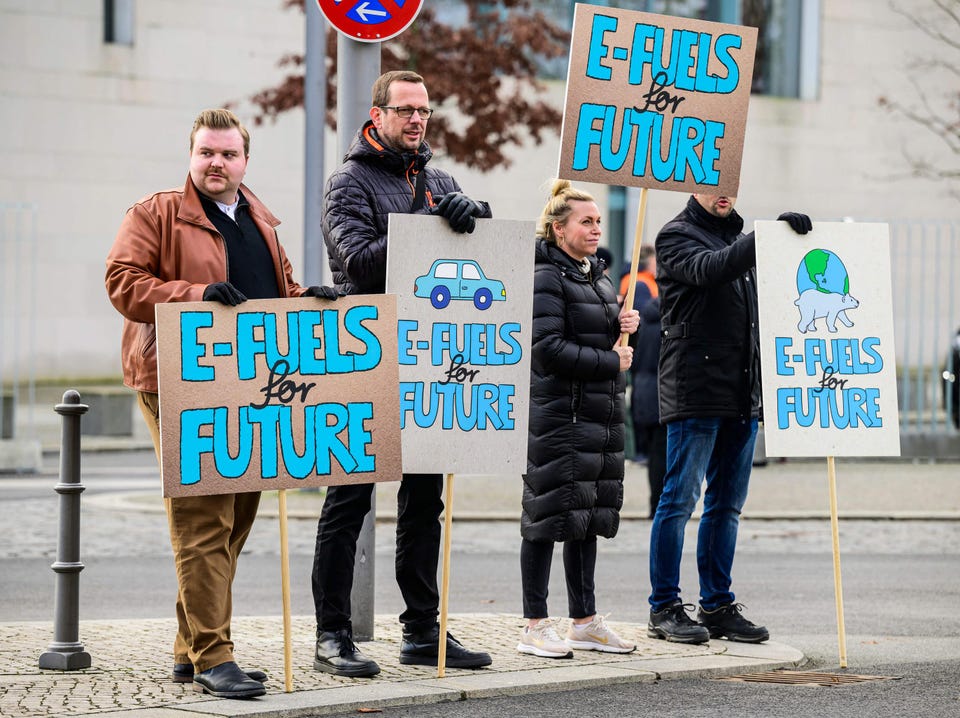EU’s Plan To End Sales Of Combustion Engine Cars Runs Into Trouble


A key part of the European Green Deal—the EU’s plan to become climate neutral by 2050—risks being derailed.
The German government.s finance minister Christian Lindner and transport minister Volker Wissing have called for combustion engine vehicles to be exempt from the EU’s plan to end the sale of new combustion engine cars and vans from 2035. The Italian government is also broadly opposed to the regulation and Poland and Hungary have also signaled their opposition to the plan.
EU governments and the European Parliament reached an agreement on the 2035 deadline last year.
A final vote by German ministers on the deal—expected to have been a formality—had been planned for 7 March but it has been postponed with no new date given for when a vote will be taken by the European Council.
Cars are responsible for 12% of greenhouse gas emissions in Europe.
Julia Poliscanova, senior director for vehicles and e-mobility at Transport & Environment (T&E) said:
“By blocking the most progressive climate legislation in the world, [Germany] risks not only the breakup of the coalition but Germany’s credibility on the world stage.”
Ministers from Germany’s FDP Liberal party now state that electrofuels should be the bridge between combustion engines cars and greater take-up of electric cars. These e-fuels are a type of drop-in replacement fuel manufactured using captured carbon dioxide.
E-fuels are promoted by the the eFuel alliance, an international association made up of companies from the oil and car sectors, along with other industrial concerns, associations and individuals.
Wissing and others are seeking reassurances from the European Commission that it will come up with a proposal on how e-fuels can be used in new combustion engine cars after 2035.
“We need e-fuels as there is no alternative if we want to operate our vehicle fleet in a climate-neutral way,” Wissing said in a TV interview.
“Whoever is serious about climate-neutral mobility must keep all technological options open,” he added.
“I don’t understand this fight against the car and why people want to ban some technologies.”
